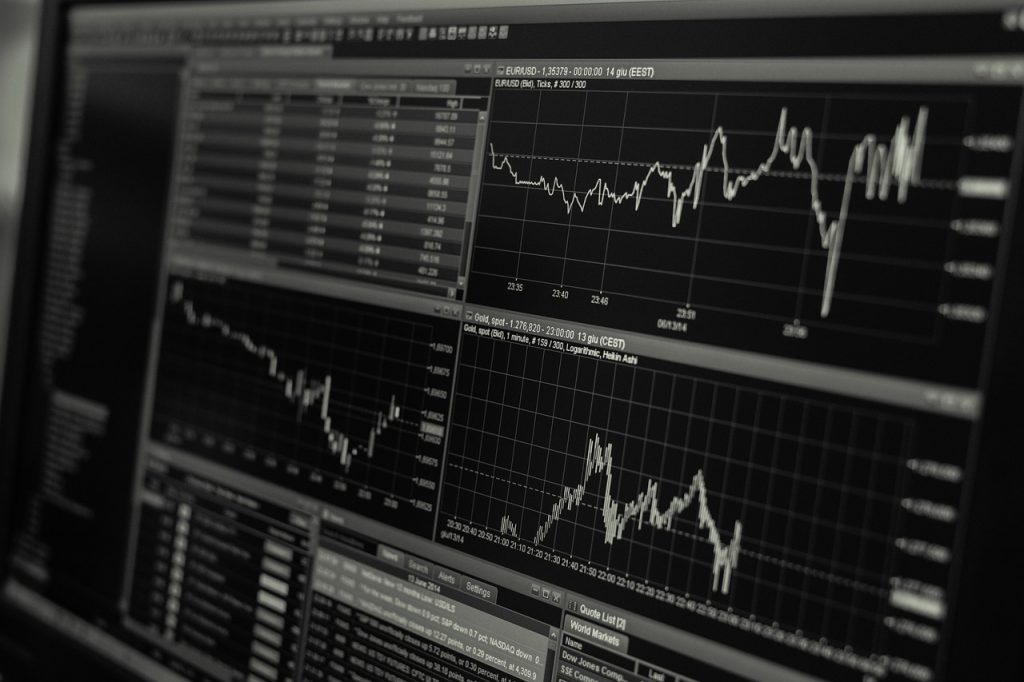moneyduvet.com
ETFs vs Stocks UK 2025: Better for Beginners?


ETFs vs Stocks UK 2025: Better for Beginners?
Table of Contents
ETFs vs Stocks UK 2025: Which Is Better for Beginners?
ETFs vs Stocks UK 2025 is the question most first-time UK investors ask, and for good reason. You want growth, but you also want a simple, low-maintenance way to get started. Exchange-traded funds (ETFs) and individual shares both offer routes into the market; however, the risks, costs, and day-to-day effort differ. This guide explains each option in plain English, compares them with real-world examples, and shows you exactly how to choose in 2025.
Education only, not financial advice. Before you open an account, verify firms on the FCA Register, check your tax wrapper options on GOV.UK (ISAs), and read product documents carefully.
Quick verdict for busy beginners
If you want diversification, low fees, and low hassle, start with an ETF. If you enjoy research, can handle volatility, and accept a higher chance of mistakes, add a small allocation to individual stocks later. Therefore, for ETFs vs Stocks UK 2025, the practical path for most new investors is ETF-first, stocks-second.
What is an ETF? (and why UK beginners like them)
An Exchange-Traded Fund (ETF) is a basket of investments you can buy and sell on a stock exchange, just like a single share. Most ETFs track an index (for example, the FTSE 100 or MSCI World), which means your money is spread across many companies at once. Consequently, one decision gives you instant diversification.
Low cost: Many broad-market ETFs charge 0.05%–0.20% per year (Ongoing Charges Figure, or OCF).
Diversification: One ETF can hold hundreds or thousands of companies.
Simplicity: You don’t need to pick winners; you buy the whole market.
Liquidity: You can trade during market hours at live prices.
For a plain-English primer, see Investopedia’s ETF explainer. For wrapper rules, review GOV.UK’s ISA guidance.
What is a stock? (and when it can make sense)
A stock (or share) is ownership in a single company. Your returns come from price changes and dividends. Because each company faces unique risks, individual shares swing more than diversified funds. Nevertheless, a great pick can outperform the market by a wide margin.
Higher upside potential: A big winner can multiply.
Control and involvement: You choose exactly what you own.
Dividends: Many UK companies pay income.
However, this freedom cuts both ways. One poor decision can sink your portfolio. Additionally, researching, monitoring results, and managing risk takes time and discipline.
Why this choice matters in 2025 (rates, inflation, and tax)
In 2025, the backdrop is mixed. Interest rates remain elevated compared with the late 2010s, which affects both savings and stock valuations. You can track the policy rate on the Bank of England site. Meanwhile, inflation still matters for “real” returns; the Bank explains inflation clearly here: What is inflation?.
From a tax perspective, the UK’s Stocks & Shares ISA lets you hold ETFs or shares with gains and dividends sheltered from tax. Therefore, for ETFs vs Stocks UK 2025, make your first decision the wrapper (ISA) and your second decision the instrument (ETF or stock). Wrapper rules live on GOV.UK (ISAs). Outside an ISA you may face dividend tax and Capital Gains Tax, so plan accordingly.
Diversification: the biggest difference in everyday risk
Diversification spreads your money across many holdings so one failure doesn’t wreck your plan. ETFs deliver diversification by design. Stocks require you to build it position by position. As a result, broad ETFs typically have lower day-to-day volatility than a handful of individual shares.
One stock = one company’s fate.
One ETF = the fate of hundreds of companies blended together.
Consequently, an ETF makes it easier to sleep at night.
Costs and fees: what really matters over decades
Small fees compound against you. Here’s what to watch:
ETF OCF (fund fee): Often 0.05%–0.20% for broad trackers.
Platform fee: Your broker may charge a % or flat fee; compare carefully.
Trading costs: Some platforms charge commissions or FX fees on foreign trades.
Spread: The difference between buy and sell prices (usually small for large ETFs).
Stocks don’t have an OCF, but frequent trading can add commissions and spreads, and chasing ideas can create hidden costs.
Safety, regulation, and product documents
Before sending money anywhere, check the firm on the FCA Register. For deposits and some cash products, the FSCS protects eligible balances; use their checker here: fscs.org.uk. For funds and ETFs, read the Key Information Document (KID) and factsheet to understand the strategy, fees, and risks.
ETFs vs Stocks UK 2025: the core pros and cons
Advantages of ETFs
Diversification in a click: One purchase spreads risk widely.
Low time commitment: Rebalancing is minimal.
Low cost: OCFs for large, plain trackers are tiny.
Behavioural help: You are less tempted to tinker stock by stock.
Advantages of stocks
Potential to outperform: A winner can beat the market for years.
Dividends you select: You can target high-yield names.
Direct ownership: You vote at AGMs, read reports, and back specific businesses.
Disadvantages of ETFs
No moonshots: You capture the market return, not single-stock jackpots.
Less targeted: You hold companies you may dislike.
Tracking error: Rarely, a fund can lag its benchmark slightly.
Disadvantages of stocks
Higher risk: Company-specific blow-ups happen.
Time-intensive: Research and ongoing monitoring are required.
Concentration danger: Five or six names is not diversification.
Side-by-side comparison table
| Feature | ETFs (Exchange-Traded Funds) | Individual Stocks |
|---|---|---|
| Diversification | High (dozens to thousands of holdings) | Low (company-specific) |
| Ongoing cost | Low OCF (often 0.05%–0.20%) | None (but trading costs if active) |
| Effort required | Low (buy, hold, rebalance) | High (research, monitor, decide) |
| Volatility | Lower than single shares (market-level) | Higher (company-level) |
| Return potential | Market average (steady compounding) | Unlimited upside / potential total loss |
| Best use-case | Core portfolio for most investors | Small satellite for enthusiasts |
| Behavioural risk | Lower (fewer decisions to second-guess) | Higher (temptation to trade frequently) |
| ISA compatibility | Yes (Stocks & Shares ISA) | Yes (Stocks & Shares ISA) |
Worked example: £1,000 in an ETF vs £1,000 in a single stock
To make ETFs vs Stocks UK 2025 concrete, consider three scenarios over 10 years:
Global equity ETF at 6% average: £1,000 → ~£1,790 (steady compounding).
Winning stock at 15% average: £1,000 → ~£4,046 (fantastic if you pick right).
Losing stock at −5% average: £1,000 → ~£599 (painful if you pick wrong).
Therefore, the ETF smooths outcomes, while stock picking magnifies both success and failure. As a result, the usual beginner path is: build a core ETF position, then experiment with small, capped stock picks.
How to choose in 6 steps (2025-friendly)
Pick your wrapper first (ISA). Use a Stocks & Shares ISA where possible so gains/dividends are tax-free.
Define your goal and timeline. If the money is long-term (5–10+ years), an ETF core is sensible.
Decide your split. Many beginners start 90% ETF / 10% stocks. Increase stock exposure only if you enjoy research and accept risk.
Choose the ETF type. A global tracker (e.g., MSCI ACWI / FTSE All-World) keeps it simple and diversified.
Automate investing. Set monthly contributions and enable dividend reinvestment where appropriate.
Review quarterly, not daily. Tweak slowly. Meanwhile, ignore short-term noise.
Practical ETF choices (what to look for)
Broad market exposure (global or developed world).
Low OCF (cost compounds).
Large fund size and tight spreads (better trading liquidity).
Acc vs Dist units (accumulation reinvests dividends; distribution pays cash).
Read the fund factsheet and KID before buying. If you invest outside an ISA or SIPP, remember potential dividend and CGT implications.
Practical stock picking (if you insist on trying)
Limit size (for example, cap any one stock at 2%–5% of the portfolio).
Diversify by sector and region (don’t buy five banks and call it diversified).
Focus on quality (consistent cash flow, manageable debt, clear strategy).
Know why you own it (write a one-paragraph thesis and a sell rule).
Avoid overtrading (commissions, spreads, and poor timing erode returns).
Because company news can change quickly, verify the broker/platform on the FCA Register and be wary of hype on social media.
Behavioural traps to avoid (whatever you choose)
Checking prices daily. It increases stress and mistakes.
Chasing hot tips. If you wouldn’t buy the whole company for ten years, don’t buy one share for ten minutes.
All-or-nothing bets. Markets reward consistency, not heroics.
Fee blindness. A tiny % fee looks harmless, but it compounds against you.
ETFs vs Stocks UK 2025: three model portfolios
To help you act immediately, here are example splits you can copy (inside a Stocks & Shares ISA):
Set-and-Forget Core (Beginners): 100% broad global ETF (acc units).
Core-and-Explore (Balanced): 80% global ETF + 20% individual stocks (max 2% per name).
Income Tilt (Cautious income seekers): 70% global equity ETF (dist units) + 20% UK dividend ETF + 10% gilts ETF.
These are illustrations, not recommendations. Always read the factsheets and KIDs, and compare platform fees via MoneyHelper.
Taxes, wrappers, and admin (UK specifics)
Inside an ISA: No UK tax on dividends or capital gains. See GOV.UK — ISAs.
Outside an ISA: Dividends may be taxable (dividend tax). Gains above the CGT allowance may be taxable (CGT).
Pensions (SIPP): Contributions can receive tax relief. Check GOV.UK pension tax relief.
Record-keeping: Download annual statements. Good admin makes tax seasons calm.
Frequently asked questions (H4)
Are ETFs safer than stocks?
Generally yes. Because ETFs are diversified, one bad company won’t sink your whole position. Nevertheless, ETFs can still fall in market downturns.
Do ETFs pay dividends?
Many do. You can buy accumulation units (reinvest automatically) or distribution units (receive cash). Check the factsheet.
Can I hold both ETFs and stocks in an ISA?
Yes. A UK Stocks & Shares ISA can hold either. See GOV.UK ISA rules.
Are ETFs good for monthly investing?
Absolutely. Most platforms let you set a monthly amount and buy automatically. This smooths your entry price over time.
How many stocks do I need for diversification?
Academic studies suggest you need dozens to approach market-level diversification. That’s why most beginners prefer an ETF core.
Can ETFs go bust?
The fund structure and underlying assets matter. Large, plain index ETFs are designed to be resilient, but always read the KID and use reputable providers.
What fees should I care about most?
OCF for ETFs, platform fees, FX fees for foreign trades, and spreads. Over decades, lower fees usually win.
Should I start with UK stocks or US stocks?
You don’t have to choose. A global ETF includes both, plus other regions. Consequently, you avoid a home-bias mistake.
Is now (2025) a bad time to buy?
Timing markets is hard. If you invest for the long term and drip-feed monthly, the exact start date matters far less.
How big should my stock “satellite” be?
For beginners, 0%–20% of the portfolio is sensible. Keep the rest in ETFs until you gain experience.
Where do I check if a broker is legitimate?
Search the FCA Register and avoid unregulated offers.
Do I pay stamp duty on ETFs?
Many ETFs listed in London are domiciled outside the UK and do not incur UK Stamp Duty Reserve Tax, whereas UK shares typically incur 0.5%. Check your platform’s cost disclosure and HMRC guidance if unsure.
Glossary (quick definitions)
ETF: Exchange-Traded Fund; a basket you trade like a share.
Stock/Share: Ownership in a single company.
OCF: Ongoing Charges Figure; the annual fee inside a fund/ETF.
ISA: Individual Savings Account; a tax wrapper for savings/investments.
SIPP: Self-Invested Personal Pension; a flexible personal pension.
Distribution (Dist): Class that pays dividends out as cash.
Accumulation (Acc): Class that automatically reinvests dividends.
Tracking error: Small performance gap between an ETF and its index.
Spread: Difference between bid and ask prices when trading.
Diversification: Spreading risk across many holdings.
Action plan you can do today
Open a Stocks & Shares ISA with a reputable, FCA-authorised platform.
Choose one broad global ETF as your core (acc units if you want automatic reinvestment).
Automate monthly contributions you can stick with.
Optional: Create a separate “research pot” for individual stocks (small, capped).
Review quarterly; rebalance gently; avoid tinkering daily.
Because this is a decision about habits as much as products, consistency will matter more than timing.
ETFs vs Stocks UK 2025: the bottom line
For most beginners, ETFs are the clear starting point: diversified, cheap, and simple. Stocks can add excitement and potential outperformance, but they deserve a small role until you have a robust ETF core and a calm process. Therefore, pick your wrapper, automate your plan, and let time and compounding do the heavy lifting.
Turn Ideas Into Income — Before Everyone Else
Join free today and get fresh tips that actually work — no fluff, just results.

About
Money Duvet (moneyduvet.com) is your one-stop online shop for success-themed accessories, collectibles and decor designed to inspire wealth and abundance. Combining bold designs with premium quality, our products turn any space into a hub of motivation and possibility.
Email:
info@moneyduvet.com
Contact Number:
+44 029 21 400 009


